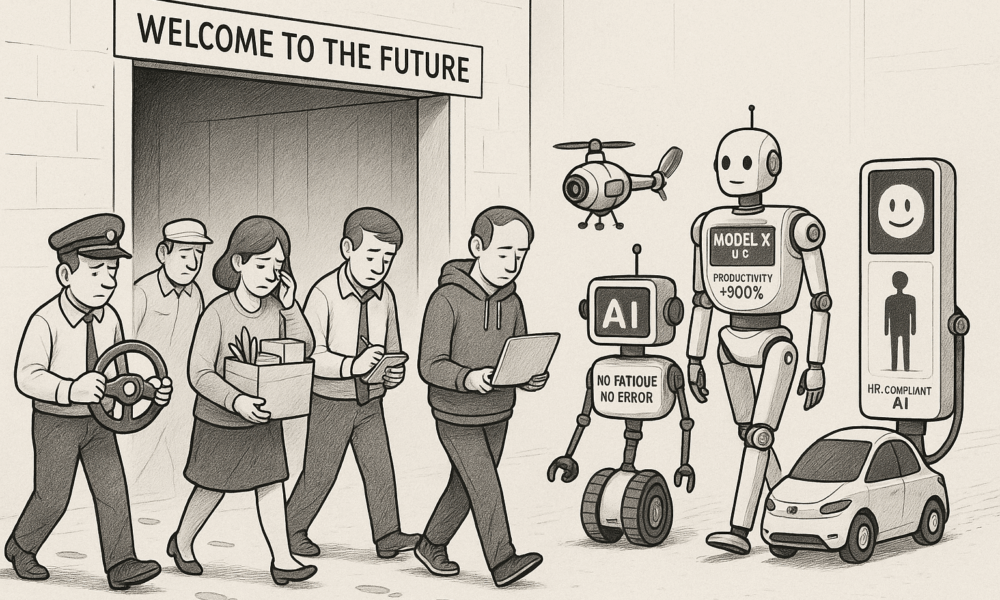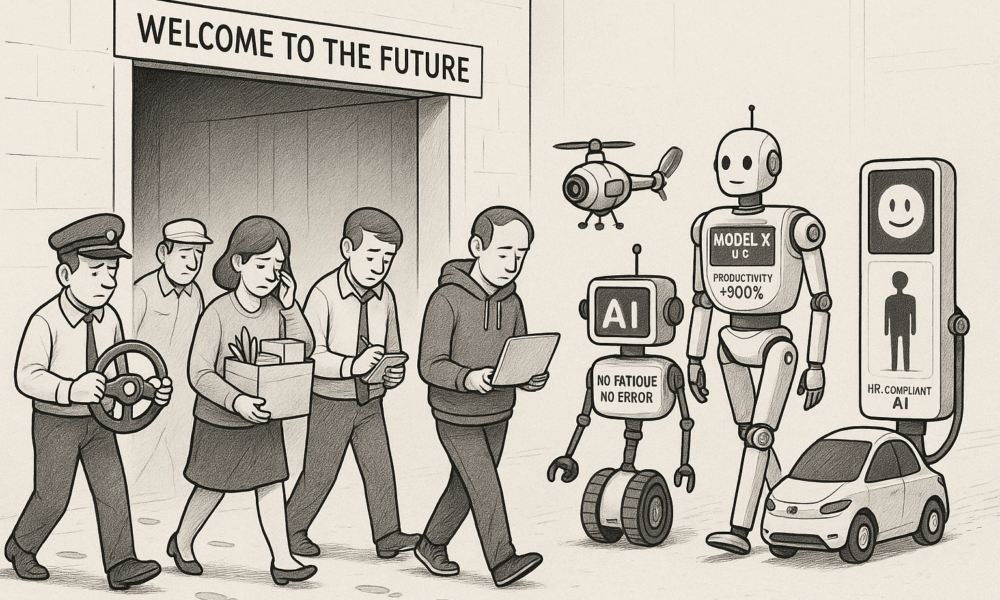The main article details how artificial intelligence (AI) could lead to massive job losses, especially in office and entry-level positions, and how AI is changing salary expectations and career paths. It also highlights the significant energy impact of AI systems and challenges in copyright protection in AI-generated art. The left perspective emphasizes the need for regulation and worker protection, the center focuses on balancing innovation with market adaptation, while the right often views AI as a tool for efficiency and uses it for ideological purposes, sometimes overlooking the human aspect.
Political Perspectives:
Left: The left-leaning narratives emphasize the risks AI poses to employment, particularly the threat of mass layoffs and the disappearance of entry-level jobs that are crucial for workforce training. They call for urgent legislative action to protect workers and regulate AI development to prevent social harm. Environmental concerns about the energy consumption of AI data centers are also highlighted, along with ethical issues surrounding AI-generated art and exploitation of human artists.
Center: Center-leaning reports tend to present a balanced view, acknowledging both the disruptive potential of AI on traditional jobs and the opportunities it creates in new sectors related to AI technology. They focus on the need for adaptation in the labor market, including retraining workers and adjusting salary expectations. The environmental impact is recognized, with calls for sustainable development of AI infrastructure. Copyright and legal frameworks are discussed as evolving areas requiring careful consideration.
Right: Right-leaning perspectives often highlight AI as a tool for increasing efficiency and economic competitiveness. They may downplay the risks to employment or frame job losses as a natural consequence of technological progress. Some right-wing narratives use AI-generated imagery for ideological messaging, emphasizing its utility over humanistic concerns. There is less focus on regulation and more on embracing AI’s potential to transform industries and culture, sometimes ignoring ethical or social implications.








